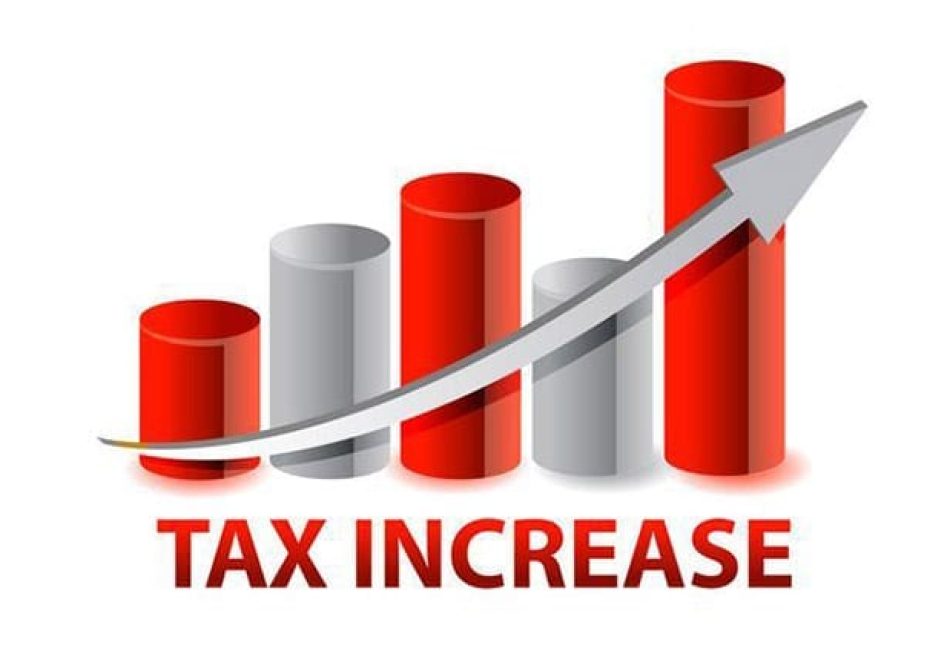Are Temporary, Regressive Tax Hikes The Best We Can Do?

Gov. Bill Richardson seems adamant in asserting that whatever tax hikes he pushes through during the 2010 legislative session will be “temporary.” This promise from a lame-duck governor is ridiculous on its face and is an impossible promise for him to keep. Since this is his final legislative session in office, he won’t even be around to determine whether the hikes he enacts will be temporary or not.
Of course, this is not where the silliness stops. Richardson will likely ask legislators to consider “sin” taxes on soda pop, cigarettes, and junk food. This puts the next governor of New Mexico in a tough spot. Even if the economy has improved a bit by 2013, the next governor will have to “cut” taxes on the politically-unpopular tobacco, soda, and junk food industries.
There is no doubt that government bureaucrats will always have a “better” use for our money than cutting taxes on habits like drinking soda, eating junk food, and smoking. But what supporters of these tax hikes and the media won’t tell you is that all of these tax hikes are highly regressive and disproportionately impact the poor.
For example, tobacco taxes are highly regressive and, if they are increased, will disproportionately harm working class New Mexicans. According to Congress’s Joint Committee on Taxation, more than two-thirds of all federal tobacco taxes come from those earning less than $40,000 per year (a pattern that also applies to state-level tobacco taxes). The poor also spend 2.5 percent of income on tobacco products versus 0.2 percent for the top 20 percent.
Soda and so-called “junk food” taxes are also highly regressive. Worse, they would create an administrative nightmare. After all, potato chips might be a junk food, but so are the slightly healthier Sun Chips? How about the fat-free potato chips that have come on the market in recent years? Things can get really complicated and unfair.
Soda taxes also face the same fairness and administrative issues. After all, Gatorade and other sports drinks have a lot of calories and lemonade, orange juice, and chocolate milk actually have more calories for each cup than does regular Coke. Diet sodas on the other hand have zero calories. Which of these items will be taxed? More importantly, once the lobbying heats up and the various interests attempt to exempt their products from taxation, who will answer these questions and how much will it cost to fund a bureaucracy to do this?
If they adopt these taxes, our elected officials will not only be balancing the state budget on the backs of the poor, something all liberals and conservatives should oppose, but they will be permanently unleashing a brave new world in tax complexity in New Mexico.
Despite the very real likelihood of these harmful tax hikes, the current fiscal crisis is actually a real opportunity for policymakers to deal with some serious problems in New Mexico. Primary among these is our bloated state and local government work force relative to the private sector.
How bloated? According to federal data uncovered in Rio Grande Foundation research, New Mexico’s government sector is the second most bloated in the nation. If New Mexico’s state and local governments were “right-sized” to simply reflect the average of the other 49 states, New Mexico taxpayers would save an astonishing $2.3 billion.
While massive layoffs in an economic downturn may not be a wise policy, the fact is that higher taxes and more government spending cost New Mexico’s private sector economy jobs. Besides, the rest of us are being forced to cut back to cope with the bad economy, shouldn’t the government work force face similar pressures for efficiency?
Difficult times demand difficult decisions and strong leadership. Hopefully legislators in both parties will recognize that burdening average New Mexicans with higher taxes is not the answer. Better still, if tough decisions to really reduce the size of New Mexico’s government bureaucracies are indeed made, The Land of Enchantment will come back economically stronger and better than ever.
Paul Gessing is the president of New Mexico’s Rio Grande Foundation. The Rio Grande Foundation is an independent, non-partisan, tax-exempt research and educational organization dedicated to promoting prosperity for New Mexico based on principles of limited government, economic freedom and individual responsibility.

